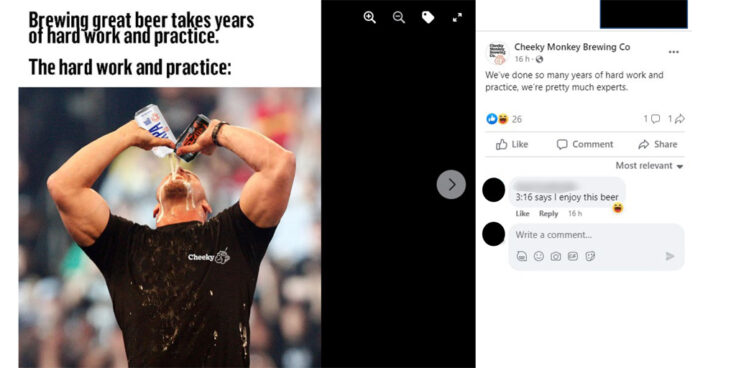
Latest ABAC Adjudications
The latest ABAC Adjudication Panel decisions deal with whether billboard advertising that can be seen by children breaches the code, whether a promotion to encourage people to participate in footy tipping in a pub encourages excessive drinking and several marketing activities that were accused of promoting rapid or irresponsible consumption of alcohol.
Lion – Placement of a Tooheys billboard
A complaint was made that a billboard advertising Tooheys New at the Castletown Shopping Centre in Townsville potentially exposed children to the promotion of alcohol.
The complainant did not raise any objection to the content of the billboard.
The complaint raised the ABAC Placement Rules that alcohol advertising should be directed towards adult audiences and away from minors.
The panel noted that the placement rules recognise that different marketing channels have different technical capabilities to target audiences.
While digital media such as social media platforms including Facebook and Instagram can effectively exclude minors from receiving alcohol communications, the ability to restrict minors from seeing ads placed on billboards is much more limited.
The code contains a restriction on alcohol ads being placed on billboards positioned within 150m sightline of a primary or secondary school, though this was not the case with the billboard subject of the complaint.
The complaint was dismissed.
Cheeky Monkey Social Media

A social media post by Cheeky Monkey was the subject of a complaint arguing that the post promotes excessive consumption of alcohol and also that, as a meme, it may appeal to a younger market and encourage them to drink in excess.
The adjudication panel noted that the test they employ is “the probable understanding of the marketing by a reasonable person taking the content of the marketing as a whole.”
The panel upheld the complaint, finding that the post breached the requirement against promoting rapid consumption of alcohol.
“Drinking two cans of alcohol at the same time is excessive alcohol consumption, and the pouring of alcohol from a height into a person’s mouth portrays that the consumption is rapid. The post does not depict a moderate or responsible approach to alcohol use,” the panel concluded.
However, the panel found that the post would have no greater appeal to minors than it would to adults, dismissing that portion of the complaint.
Prior to the decision being announced Cheeky Monkey had responded to the complaint advising it would remove the post from Instagram and Facebook.
Liquor Clearance Centre (Booze Mate)
Window signs reading “Sober is boring!!” and “Sorry!! We are too drunk to open…” were the subject of a complaint that they breached the Code by encouraging drinking until intoxicated and suggesting that alcohol consumption may cause a change in mood and lead to social success.
The complaint was upheld with the company acceptinf the breach and removing the signs.
Carlton Draught AFL Footy Tipping Competition
A complaint was made that a Carlton Draught promotion run via the FANZO footy tipping app in which a free beer was awarded to winners tipping the correct margin was predatory marketing by incentivising “2 of the most problematic things in society – gambling AND alcohol.”
“Everyone knows that alcohol lowers your inhibitions, which would in turn make the individual less likely to be able to control their gambling habits of alcohol consumption,” the complainant argued.
CUB replied noting that the FANZO app is a footy tipping app that replaces paper rather than a gambling application. Players able to win a pot of beer if they submit their tips in a venue, or a voucher if submitted at home with vouchers unable to be accumulated. The company noted the difficulties in correctly tipping the results was also a limiting factor.
The Adjudication Panel found that a reasonable person would not consider that the competition encouraged excessive alcohol consumption, rather it was designed to encourage players to attend a pub to watch the game, which – while potentially encouraging consumption – was not inherently promoting excessive consumption.
The panel also agreed that the tipping competition was not a form of gambling.
The complaint was dismissed.



